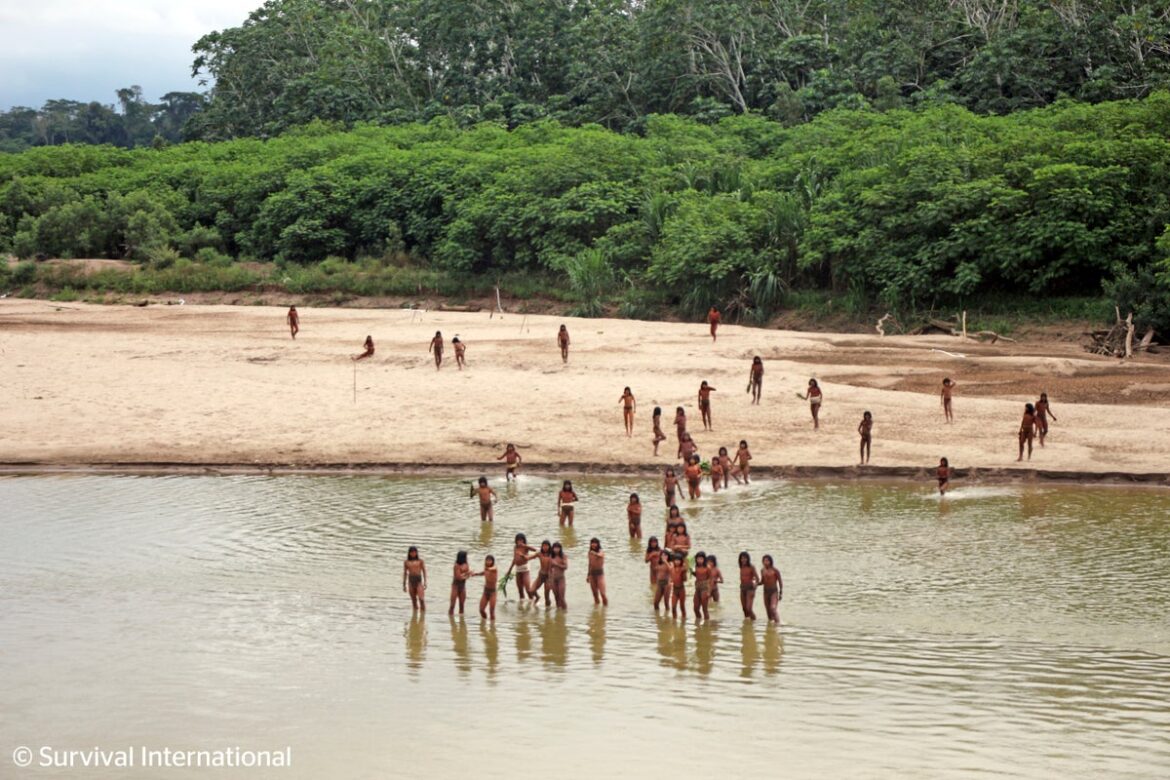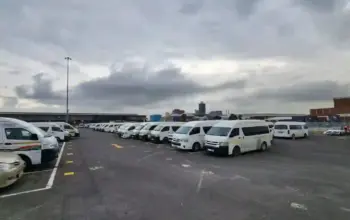Deep inside Peru’s Amazon rainforest, one of the world’s last uncontacted tribes is facing a deadly threat—not from weapons or war, but from something as ordinary as the common cold.
The Mashco Piro people, who have lived in isolation for centuries, were recently spotted near the Yine Indigenous community of Nueva Oceania in Madre de Dios.
Their sudden appearance has sparked alarm that even minor illnesses, carried unknowingly by outsiders, could devastate the entire group.
The Invisible Danger of Disease
For generations, the Mashco Piro have chosen isolation to protect their way of life and avoid exposure to diseases.
But their lack of immunity means even a sniffle could prove fatal.
Enrique Añez, the leader of the Yine community, voiced his fears: “It is very worrying; they are in danger.
Heavy machinery is cutting down our trees, crossing our river… something bad could happen again.”
Logging Sparks Tension
These warnings come as a logging company resumes operations in the same fragile region.
Maderera Canales Tahuamanu (MCT) is working on a bridge across the Tahuamanu River, bringing with it bulldozers, heavy trucks, and noise that travels deep into the forest.
Environmental advocates argue this not only destroys ecosystems but also drives uncontacted tribes toward populated areas, raising the risk of unwanted encounters and deadly infections.
A History of Conflict and Loss
The Mashco Piro have fiercely defended their ancestral home.
In 2024, four loggers were killed by bow-and-arrow attacks after entering their territory.
While the tribe remains largely hidden, their history is marked by devastating losses whenever contact with outsiders has occurred.
Activists warn that the situation could escalate again as both the Mashco Piro and loggers have recently been seen occupying the same space.
Warnings from Campaigners
Groups like Survival International are sounding the alarm.
Researcher Teresa Mayo explained that despite tragic clashes last year, nothing has changed to strengthen land protections.
“The Yine are reporting seeing both the Mashco Piro and the loggers almost at the same time. A clash could be imminent,” she warned.
According to campaigners, the logging industry is forcing tribes to move closer to villages, increasing the chance of a dangerous outbreak.
Controversy Over Logging Licenses
MCT has long denied wrongdoing, arguing that it operates under legal permits granted by the government.
While the Forest Stewardship Council (FSC) suspended its certification of the company after Indigenous complaints, campaigners point to fresh machinery tracks as proof that operations are still ongoing.
Critics argue that government oversight is weak, and the very reserve created in 2002 to protect uncontacted tribes has failed to stop large-scale logging.
A Question of Survival
The Peruvian government maintains it is working to protect Indigenous communities, but experts say its efforts fall short.
With stalled attempts to expand the protected Madre de Dios Territorial Reserve and logging concessions overlapping tribal land, the Mashco Piro remain on the brink.
Unless decisive action is taken soon, one of the largest uncontacted tribes in the Amazon could face extinction—not because of modern weapons, but because of illnesses as simple as a cough or cold.



